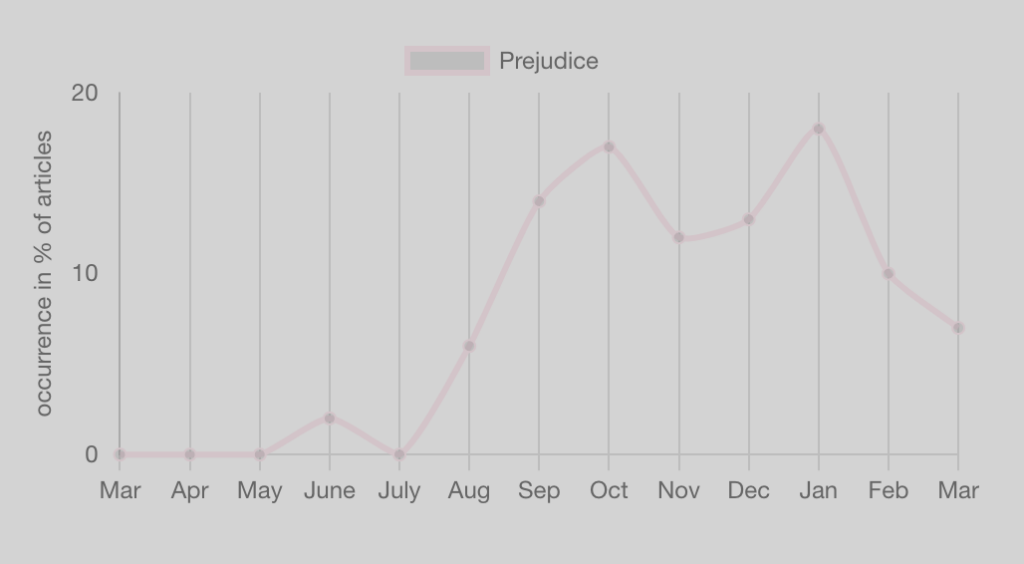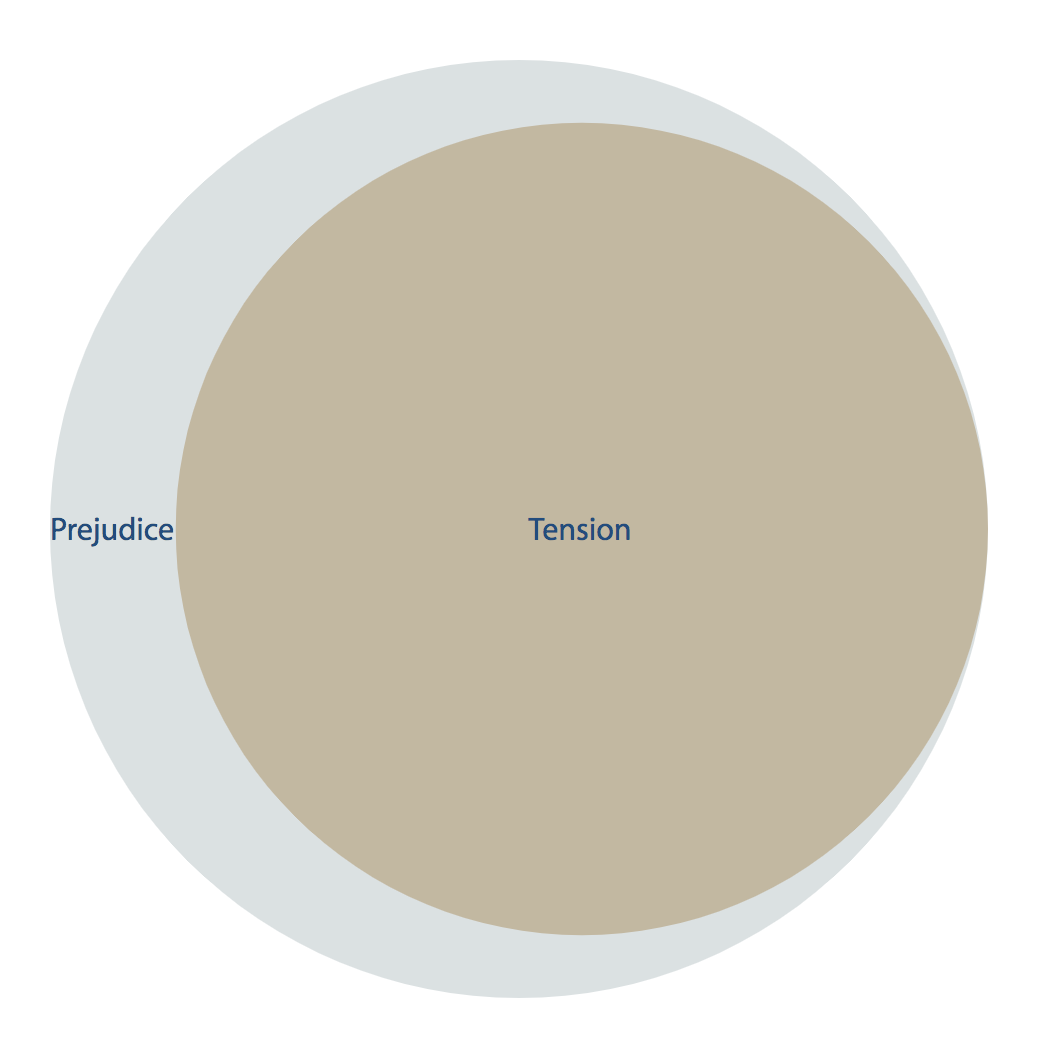Insights from the dashboard: Prejudice in the UK
Insights from the dashboard: Prejudice in the UK
The EARS dashboard is a collection of summaries from European media articles on religion and society. Between 1 January and 13 April of 2022, a total of 111 articles summaries were added on the topic of prejudice. Out of these, 13 summaries were about the UK. We were able to discover a number of insights into how prejudice has appeared in the UK and how this has been reported in the news.
Media coverage on prejudice and the UK
Media coverage on prejudice in relation to the UK was particularly high in January 2022, and despite a decline, still remains above August 2021 levels of coverage.

This media coverage, as shown in the word cloud below, has particularly focused on the questions of Islamophobia and Muslims in the UK.

Deep-dive: Islamophobia and Muslims in the UK
A closer look at the media coverage itself highlights a key issue: Islamophobia is systemic in the UK. Islamophobia appears to ripple through the UK’s political institutions as well as into its daily social interactions.
Islamophobia in the UK’s political institutions was highlighted most in the story of former Conservative minister Nusrat Ghani’s allegations against her party.[1] She claimed that she was demoted from the position of transport minister in 2020 because of her Muslim faith. Ghani said a government whip told her that her “Muslimness” was an issue for her party and her faith was “making colleagues uncomfortable.” This news reignited attention towards the Conservative Party’s history with Islamophobia allegations, including the prime minister’s infamous comparison of Muslim women wearing the burka to ‘letterboxes’.
The impact of Islamophobia on daily social interactions in the UK was highlighted most in reports on a national survey carried out by the University of Birmingham. It found that the British public is almost three times more likely to hold prejudiced views of Islam than of other religions.[2]
EARS has published a dedicated weekly comment on this survey, which described Islamophobia to be ‘the dinner table prejudice’,[3] not simply because it is so widespread in Britain, but also because it is socially acceptable. Unlike in the case of other religious groups, Britons openly and freely admit to their prejudice against Muslims.[4] The survey’s lead, Dr Stephen Jones, explains this is because people think they know about Islam and Muslims.[5]
The survey showed that this level of daily prejudice is driving popular support for policies that seek to exclude Muslims from public life in Britain. 18.1% of the British public supports banning all Muslim migration to the UK, with 9.5% strong in their support.[6] This public position on Muslim migration is 4% to 6% higher than for any other ethnic and religious group.[7]
The demands to exclude Muslims from public life were in fact reflected by the dashboard, which showed that a vast majority of media coverage on prejudice also highlighted tensions in the UK.

Learn more on the EARS dashboard
The EARS dashboard allows you to gain insight into a large number of topics, including prejudice. It is a free tool that allows you to make connections like those described above, and to find out about relationships between interesting subjects across Europe. Please visit the dashboard to learn more.
Sources
[1] ‘All my life people have told me to lose my Muslimness’ – politicians on their battle with Islamophobia
[2] Middle-class Britons more likely to be biased about Islam, finds survey
[3] The Dinner Table Prejudice: Islamophobia in Contemporary Britain
[4] University of Birmingham survey reveals Islamophobia is the posh person’s prejudice
[5] University of Birmingham survey reveals Islamophobia is the posh person’s prejudice
[6] The Dinner Table Prejudice: Islamophobia in Contemporary Britain
[7] The Dinner Table Prejudice: Islamophobia in Contemporary Britain






